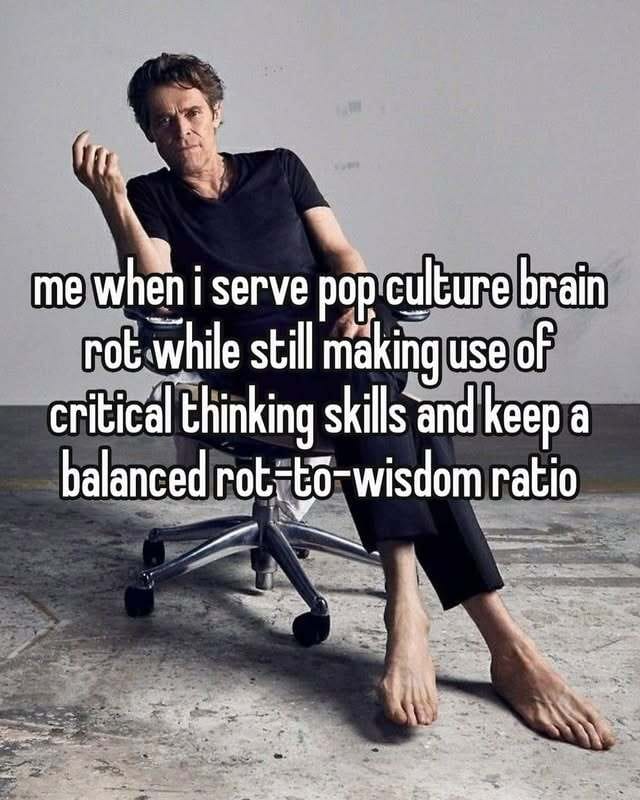“I noticed the compulsive behaviors first.”
That’s not a therapist’s note, it’s a CNN journalist describing what happened when she tried to get off social media.
Ironic, yes, to post online about the desire to get offline 🤳. Welcome to this week’s “brain rot”-themed newsletter, where we dive into the trending desire to disconnect 🏝️ and why some say it’s a luxury to be offline.
This week 🗓️
🧠 “Brain Rot”: Meme Slang Reflects Mental Fatigue
🧩 What’s happening:
The slang brain rot — Oxford’s 2024 Word of the Year — captures cognitive exhaustion from constant scrolling. A 2024 study published in the Journal Brain Sciences found heavy social-media users show 23% higher attention fatigue and reduced cognitive resilience.
💬 Why it matters for therapists:
The humor conceals real depletion. “Brain rot” captures both the comedy and the collapse of overstimulation — a collective fatigue that shows up clinically.
🪞 How it may show up in the room:
“My brain’s fried from TikTok.”
Emotional flatness or irritability.
Difficulty sustaining focus or depth.
🛋️ What therapists can do:
Validate digital exhaustion as real and explore its impact.
Use the metaphor to explore rest and recovery.
Introduce “digital hygiene” and mindful media rest.
🔗 Go deeper:
💡 The bottom line:
Meme slang often reveals what culture won’t yet say too loudly — our brains are tired.
📱 De-Influencing: Social Media Rebels Against Overconsumption
🧩 What’s happening:
The hashtag #Deinfluencing has surpassed 300 million views on TikTok. With de-influencing, creators now promote what not to buy, rejecting overconsumption and pulling a 180 on influencer culture…or is it? Nearly 50% of Gen Z say influencer culture raises their anxiety. But de-influencing may not actually be the reprieve people want and need.
💬 Why it matters for therapists:
Minimalism and restraint are indicative of a larger trend—the growing desire for control and calm. Where consumption has become an emotional regulation technique, de-influencing may push back.
🪞 How it may show up in the room:
Clients feeling guilt or pride over “not buying.”
Shame around indulgence.
Using simplicity (rather than overconsumption) to manage overwhelm.
🛋️ What therapists can do:
Ask whether “less” feels grounding or punitive.
Encourage values-based consumption.
Reframe minimalism as mindful, not moral.
🔗 Go deeper:
💡 The bottom line:
De-influencing is still influencing — just packaged as restraint.
📵 The Luxury of Logging Off: When Disconnection Becomes Status
🧩 What’s happening:
Digital detoxing is becoming aspirational. From Bottega Veneta’s “digital silence” campaign to influencers deleting their accounts for mental clarity, logging off has become a marker of self-control — and privilege. CNN reports a growing number of Americans are taking “social media sabbaticals” after burnout, but experts note that true disconnection often requires financial freedom and flexibility (CNN, Feb 2025). In a culture built on digital visibility, being unreachable is the new luxury.
💬 Why it matters for therapists:
“Logging off” can signal empowerment, avoidance, or a whole slew of other feelings. Clients may romanticize analog living — journaling, film cameras, print books — as emotional escape from constant connectivity. The desire for silence may reveal deeper needs for agency, rest, or identity outside the algorithm.
🪞 How it may show up in the room:
Clients idealizing pre-internet life or fantasizing about “starting over offline.”
Shame about phone use or “addiction to scrolling” — both wanting and not wanting to disconnect.
Comparison to others’ curated “detox” lives that feel out of reach.
🛋️ What therapists can do:
Explore the meanings behind withdrawal — rest vs. retreat.
Normalize ambivalence about connection and solitude.
Encourage balanced “digital boundaries.” We don’t always need to go to full renunciation.
🔗 Go deeper:
💡 The bottom line:
Logging off is no longer just a wellness choice — it’s a statement about control, privilege, and presence. Therapists can help clients unpack what “rest” really means in a world that never stops refreshing.


